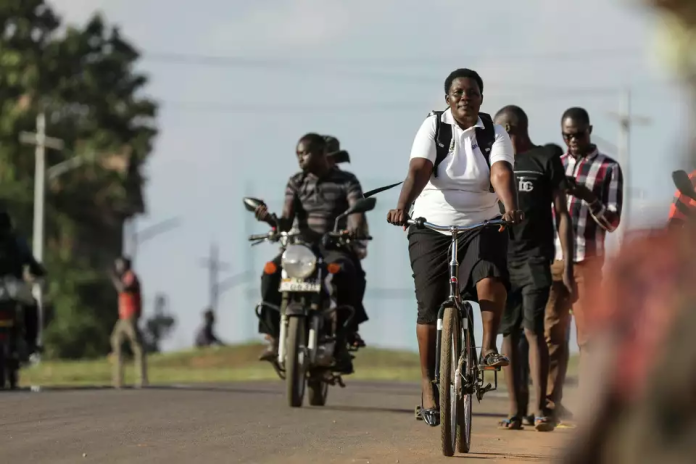Specialised bicycles are enhancing medical outreach in remote Ugandan communities through a programme equipping village health workers with durable transportation, according to AP News.
The initiative, led by Chicago-based non-profit World Bicycle Relief and its local affiliate Buffalo Bicycles Uganda, aims to overcome mobility barriers in regions with underdeveloped infrastructure.
Community health extension workers (CHEWs) across two Ugandan districts received 331 Buffalo Bicycles since 2023. These heavy-duty bicycles feature reinforced steel frames designed for rugged terrain and carry a five-year warranty.
Priced at approximately $200, triple the cost of standard bicycles, the units are financially inaccessible to most unsalaried health workers without programme support. Officials also emphasise their long-term cost efficiency due to reduced maintenance needs.
The bicycles function as communal assets, available to villagers for critical medical journeys including antenatal check-ups, HIV medication collection, and emergency hospital transfers. A health worker noted “the goodness about this bike” lies in its collective accessibility.
Operational impact documented
Ugandan health authorities identify transportation as a key constraint for CHEWs, compounded by resource shortages that leave facilities without ambulances or fuel. Workers must typically travel 5 kilometres twice weekly to report at government health centres while conducting home visits across large catchment areas.
Recent data indicates significant programme efficacy: a May World Bicycle Relief study showed bicycle-equipped CHEWs achieved a 108% increase in weekly household coverage and reduced travel time to health facilities by nearly half. CEO Dave Neiswander stated the findings confirm “mobility is not a luxury in healthcare” but an essential component.
The Ministry of Health’s Permanent Secretary Diana Atwine advocates expanding distribution, citing CHEWs’ critical role in preventable mortality. Implementation focuses on districts like Lira, 442 kilometres north of Kampala, where unpaved farm roads challenge access despite cultural acceptance of female riders.
The bicycles demonstrated life-saving utility in documented emergencies. In one incident, a health worker transported a severely injured child with a deep cut to medical care after the patient had briefly lost consciousness. The attending worker attributed the successful intervention to bicycle access.
That bike, not me, saved the life of that child. If that bike hadn’t been there, I don’t know what would have happened.
However, initial user adaptation challenges were reported regarding the specialised braking system, with one worker recalling, “When I climbed on it, it wasn’t that easy as I thought.” Although the programme monitoring confirms the difficulties were temporary.
The initiative continues across Uganda’s 146 districts, with operational sustainability dependent on ongoing partnership funding between health authorities and implementing organisations.
